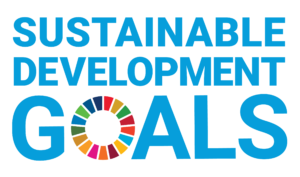FarmTech Society and Future Food Institute for Biodiversity - Virtual Roundtable Panel Discussion
21st May 2021 | 14:30 - 16:00
Biodiversity is important because it is an essential source of goods, resources, and services for humans: otherwise known as ecosystem services. These services, which specialists classify as support, supply, regulatory, and cultural, directly or indirectly benefit all human, animal, and plant communities on the planet.
Biodiversity enhances the productivity of any ecosystem. It is a fact that the loss of biodiversity accelerates food and energy insecurity, increases vulnerability to natural disasters such as floods or tropical storms, reduces the level of health within society, reduces the availability and quality of all resources, and impoverishes above all, cultural traditions.
In addition to its value in itself, the same services are key building blocks in the economies of human communities and states. For example, plant biodiversity, both in cultivated and wild plants, forms the basis of modern agriculture, enabling food production and contributing to the health and nutrition of the world’s entire population.

Climate change is producing significant alterations to plant and animal biodiversity communities and ecosystem services. This is happening, for example, through rising average temperatures, changing regional and local climate systems, altered rainfall patterns, more intense cyclones, heat waves, torrential rains, melting ice caps and alpine glaciers, and rising sea levels.
The already observed impacts of climate change concern: ecosystems (with alterations in distribution, composition, structure, function, phenology, ecosystem services); species, with changes in phenology, distribution (migration northwards and to higher altitudes, range contraction), population; genetic diversity and increase in agriculture production risks.
Moreover, impacts and responses of ecosystems and landscapes to ongoing climate change trends, in terms of distribution, composition, function, phenology, and ecosystem services, are significant, albeit of varying magnitude depending on geographic regions and biome types. In addition, scientists are concerned about the ecological interactions and feedback that can be generated and lead to severe, imponderable, irreversible impacts on biodiversity and ecosystem services.
These challenges, caused by climate change and needed regulatory pressures, are forcing field farmers to consider adopting new practices: it appears that the timing is now to understand and discuss viable concepts of controlled environment agriculture (CEA) practices. CEA is a practice that embraces technology to optimize growing environments for plant and protein products while reducing the use of natural resources like land, water, and energy, as well as eliminating growing risks. Comparing CEA advantages versus traditional field production, controlled environment agriculture has some distinct improvements in sustainable resource management and value creation in food production. For example, it intensifies the output and requires a fraction of the space for the same production.
This practice needs to be evaluated and supported towards wider adoption. At the same time, this transition requires well-designed policies that would integrate seemingly polarized attempts to increase biodiversity in agricultural land while still growing the food required for a growing population in the face of climate change challenges.
Technologies, such as Controlled Environment Agriculture (CEA), represent a promising agricultural practice provided it can help effectively contribute to saving natural resources.
Speakers & Moderators
Keynote Speaker
Franc Bogovič MEP
Member of the European Parliament, where he engages in topics related to agriculture, rural and regional development, cohesion policy, as well as energy. He leads the Smart Villages Initiative, ensuring EU funding for pilot projects and preparatory actions.
Panelist
Cristina Petracchi
Leader of the FAO eLearning Academy: elearning.fao.org
Panelist
Rodrigo Barrios
Strategic Partnership Manager of Crop Trust
Panelist
Tisha Livingston
CEO of Infinite Acres, creating the state of the art technology available for indoor farming.
Panelist
Sara Roversi
Founder of Future Food Institute
Panelist
Kees Aarts
Founder of Protix, market leader in alternative protein solution with insect production.
Moderator
Nicole Thorpe
Director of Cultinova, creating digital solutions for efficient, transparent, and sustainable food production.
Moderator
Stanislas Demeestere
Legal counsel for FarmTech Society and is the Account Executive, Energy and Sustainability at Hume Brophy
Moderator
Clement Cardon
Academic Policy Adviser, FarmTech Society
Observers
Cinzia Tegoni
Isabella Trapani
European Commission DG AGRI office of Policy Perspectives




